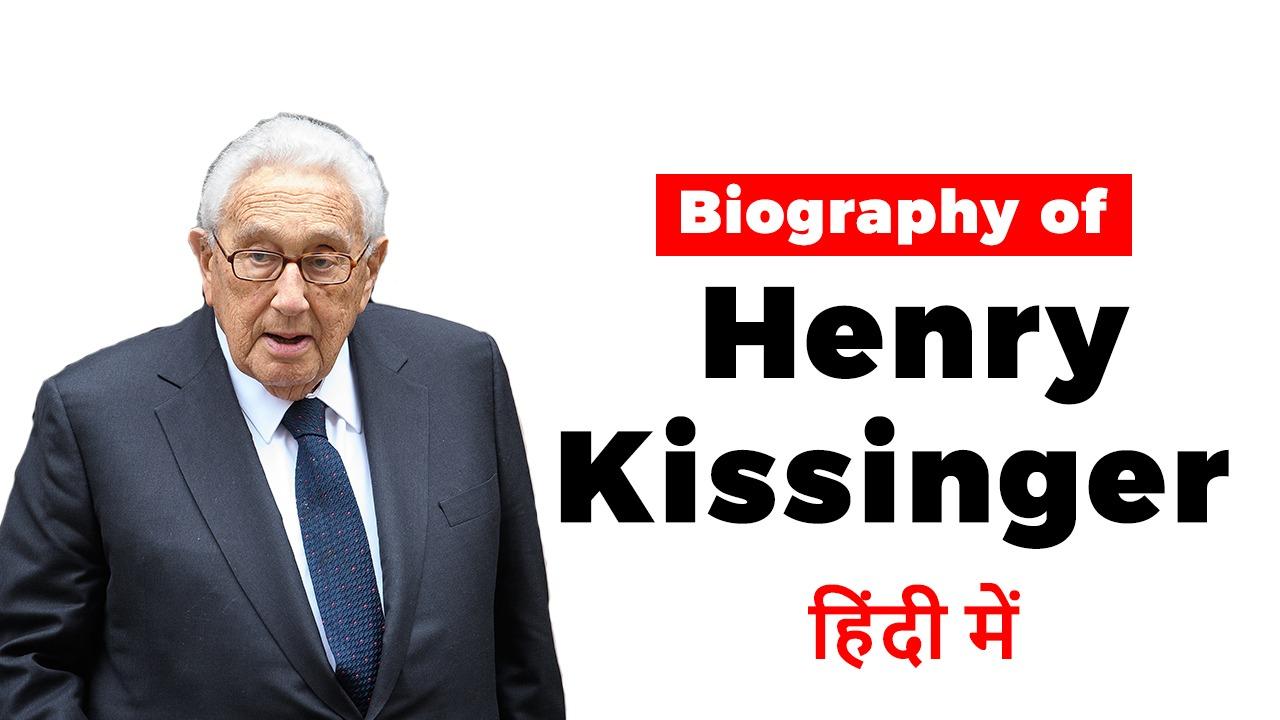Table of Contents
EARLY LIFE
- Kissinger was born Heinz Alfred Kissinger in Fürth, Bavaria, Germany in 1923 to a family of German Jews.
- His father, Louis Kissinger (1887–1982), was a schoolteacher. His mother, Paula (Stern) Kissinger (1901–1998), from Leutershausen, was a homemaker.
- In 1938, when Kissinger was 15 years old, he fled Germany with his family as a result of Nazi persecution. His family briefly emigrated to London, England, before arriving in New York on September 5. Kissinger spent his high school years in the Washington Heights.
ARMY
- Following his first year at George Washington High School, he began attending school at night and worked in a shaving brush factory during the day.
- Following high school, Kissinger enrolled in the City College of New York, studying accounting. He excelled academically as a part-time student, continuing to work while enrolled. His studies were interrupted in early 1943, when he was drafted into the U.S. Army.
- On June 19, 1943, while stationed in South Carolina, at the age of 20 years, he became a naturalized U.S. citizen.
ACADEMICS
- In June 1945, Kissinger was made commandant of the Bensheim metro CIC detachment.In 1946, Kissinger was reassigned to teach at the European Command Intelligence School at Camp King and, as a civilian employee following his separation from the army, continued to serve in this role.
- Henry Kissinger received his AB degree in political science from Harvard College in 1950.He received his MA and PhD degrees at Harvard University in 1951 and 1954, respectively.
- Kissinger remained at Harvard as a member of the faculty in the Department of Government.During 1955 and 1956, he was also study director in nuclear weapons and foreign policy at the Council on Foreign Relations.
SECRETARY OF STATE
- From 1956 to 1958 he worked for the Rockefeller Brothers Fund as director of its Special Studies Project. He was director of the Harvard Defense Studies Program between 1958 and 1971.
- After Nixon became president in January 1969, Kissinger was appointed as National Security Advisor. Kissinger being sworn in as Secretary of State on September 22, 1973.
- The relationship between Nixon and Kissinger was unusually close. They were a fascinating pair. In a way, they complemented each other perfectly.
NOBEL PRIZE?
- He was jointly awarded the 1973 Nobel Peace Prize with Lê Đức Thọ for helping to establish a ceasefire and U.S. withdrawal from Vietnam. The ceasefire, however, was not durable.Thọ declined to accept the award and Kissinger appeared deeply ambivalent about it (donating his prize money to charity, not attending the award ceremony and later offering to return his prize medal).
- Nixon gave Kissinger the freedom to assemble his own team in 1969 in order to “revitalize” the National Security Council.
DÉTENTE AND VIETNAM WAR
- Kissinger sought to place diplomatic pressure on the Soviet Union by playing the “China card”. Kissinger made two trips to the People’s Republic of China in July and October 1971.
- While Kissinger’s diplomacy led to economic and cultural exchanges between the two sides. Kissinger’s involvement in Indochina started prior to his appointment as National Security Adviser to Nixon.
- Nixon had been elected in 1968 on the promise of achieving “peace with honor” and ending the Vietnam War. By promising to continue the peace talks which Johnson began in May 1968 in Paris Nixon admitted that he had ruled out “a military victory” in Vietnam..
- As Congress was unlikely to grant approval to bombing Cambodia, Nixon decided to go ahead without Congressional approval and keep the bombings secret, a decision that several constitutional law experts argued was illegal.
VIETNAM WAR
- By early 1972, Nixon boosted that he had pulled out 400, 000 U.S soldiers from Vietnam since July 1969, and battle deaths had fallen from an average of 200 per week in 1969 down to an average of 10 per week in 1972.
- On 24 July 1972, Congress passed an act calling for the total withdraw of all American forces from Vietnam once all of the American POWs in North Vietnam were released, causing Kissinger to say the North Vietnamese only had to wait until “Congress voted us of the war”.
- On 4 June 1973, the Senate passed a bill that already cleared the House of Representatives to block funding for any American military operations in Indochina and Kissinger spent much of the summer of 1973 lobbying Congress to extent the deadline to 15 August in order to keep bombing Cambodia.
VIETNAM WAR
- South Vietnam’s economy’s had heavily dependent upon the hundreds of millions brought in by spending by the U.S. military and the withdraw of American forces threw the economy into recession. Even more damaging was the Arab oil shock of 1973–74 which destabilized South Vietnam’s.
- On 17 April 1975, the Lon Nol regime collapsed and the Khmer Rouge took Phnom Penh. On 30 April 1975, Saigon fell to the PAVN and the war in Vietnam finally ended.
BANGLADESH WAR
- Under Kissinger’s guidance, the United States government supported Pakistan’s strongman, General Yahya Khan, in the Bangladesh Liberation War in 1971.
- Kissinger was particularly concerned about the expansion of Soviet influence in the Indian Subcontinent as a result of a treaty of friendship recently signed by India and the USSR.
LATER
- Kissinger left office when Democrat Jimmy Carter defeated Republican Gerald Ford in the 1976 presidential elections after Kissinger left office in 1977, he was offered an endowed chair at Columbia University.
- From 2000–2006, Kissinger served as chairman of the board of trustees of Eisenhower Fellowships. • On November 17, 2016, Kissinger met with then-President-elect Donald Trump during which they discussed global affairs. Kissinger also met with President Trump at the White House in May 2017.
Biography Free PDF






















 WhatsApp
WhatsApp